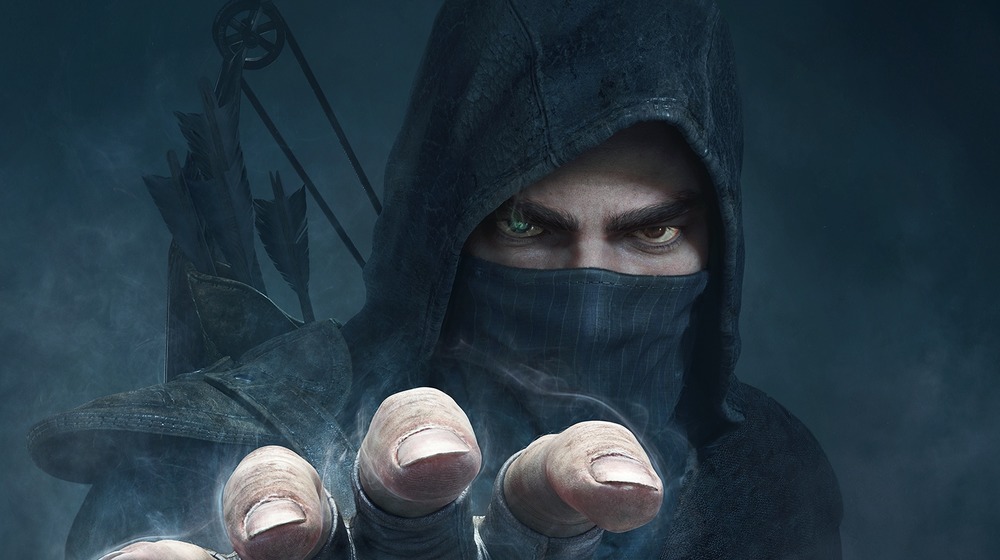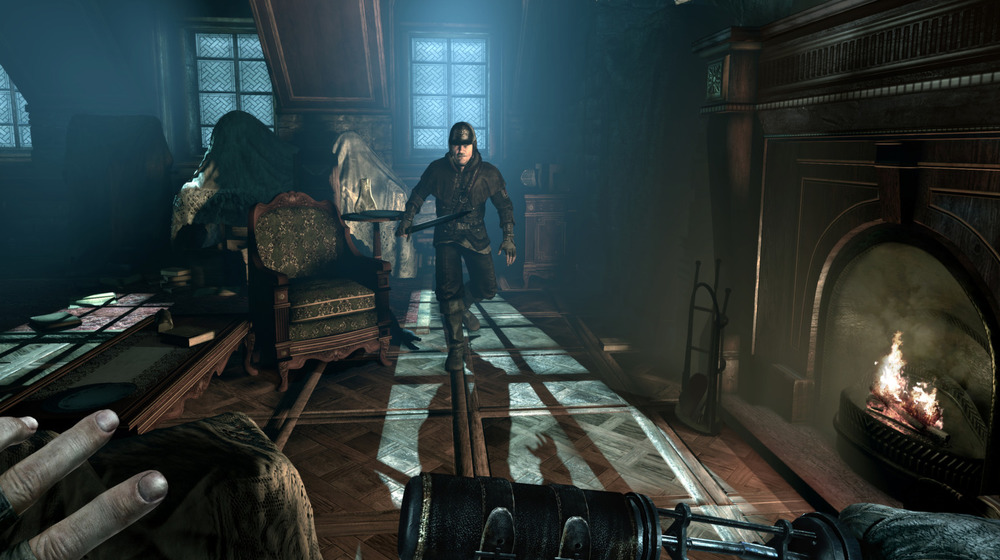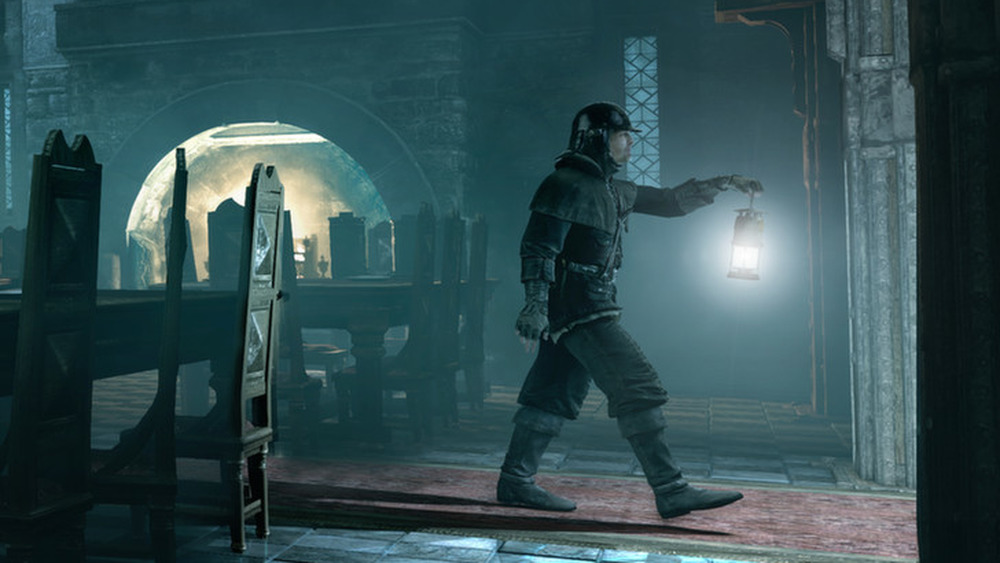Why The Thief Remake Was A Complete Flop Despite The Hype
1998's Thief: The Dark Project and its 2000 sequel, Thief 2: The Metal Age, were foundational stealth games. The first game was revolutionary for slowing down the first-person genre and introducing tension not through overwhelming opposition, but in the simple act of being caught. Thief 2 expanded on the gameplay invented for Thief, and both games laid the groundwork for the stealth mechanics still in use today.
The games are also fondly remembered for their strong world-building. Dour (but likable) master thief Garrett lived in an odd steampunk reality where electricity was commonplace but guns were nonexistent. Insidious factions like the Brotherhood waged a quiet war against the Hammerites. The game had a dark, mature tone balanced with subtle humor.
The first attempt to modernize the series, 2004's Thief: Deadly Shadows, held mostly faithful to the original games, but was seen by fans as a disappointment. The series was shelved for the remainder of the decade. When Eidos Montreal announced plans to reboot the series with a modern open world in line with the Thief legacy, fans were thrilled — but ultimately let down by the results. Here's why the Thief remake flopped, even with all the hype.
Cast changes and bad writing fail to live up to the Thief legacy
After a series of leaks had hinted at Garrett's return, Game Informer officially announced the Thief reboot with a cover story, and fans were interested. In the Polygon comments section, one fan stated, "To say I'm excited is a massive understatement."
However, that excitement began to fade when Eidos Montreal revealed that Garrett's voice actor, Stephen Russell, had been passed up for Romano Orzari. The reasoning behind this was that Eidos Montreal needed an actor who could both provide dialogue and motion capture for the younger, broodier, Garrett — who fans began referring to as "Gothy Garrett." A petition even went up to try and convince Eidos Montreal to rehire Stephen Russell, to no avail.
Fans were even more disappointed when the game arrived when the all-important motion capture failed to stop bad lip-synching, alongside terrible dialogue. At one point, Garrett muses, "To be alone, you sometimes must be alone."
The tonal changes weren't just skin deep. The game was criticized for being far more linear and action-oriented than its predecessors, even containing sequences where Garrett uncharacteristically dodged explosions.
The stealth genre moved on where Thief had not
The 2014 iteration of Thief wasn't just weighed down by its failure to live up to its predecessors. The stealth genre had evolved in the ten years between Thief and the last game in the series, Thief: Deadly Shadows, and the new game failed to accommodate for that.
The two most important names in stealth in 2014 were Assassin's Creed and Dishonored. By that point, the Assassin's Creed series had locked down its combination of stealth, parkour, and open world exploration with Assassin's Creed: Black Flag. The Dishonored series had premiered in 2012 and revitalized the stealth experience, even gaining a reputation as the spiritual successor to the Thief franchise.
All of this was stacked against Thief, which was met with mixed reviews. One brutal review from the Telegraph read, "I had more fun making my way up to bed in the dark after playing Thief than I did at any point during its benighted trudge across The City."
The game failed to live up to the legacy of the series, impress fans, or do much in the way of sales. When rumors circulated in 2017 about a fifth Thief game, Eidos Montreal studio head David Anfossi simply tweeted, "Forget it."



